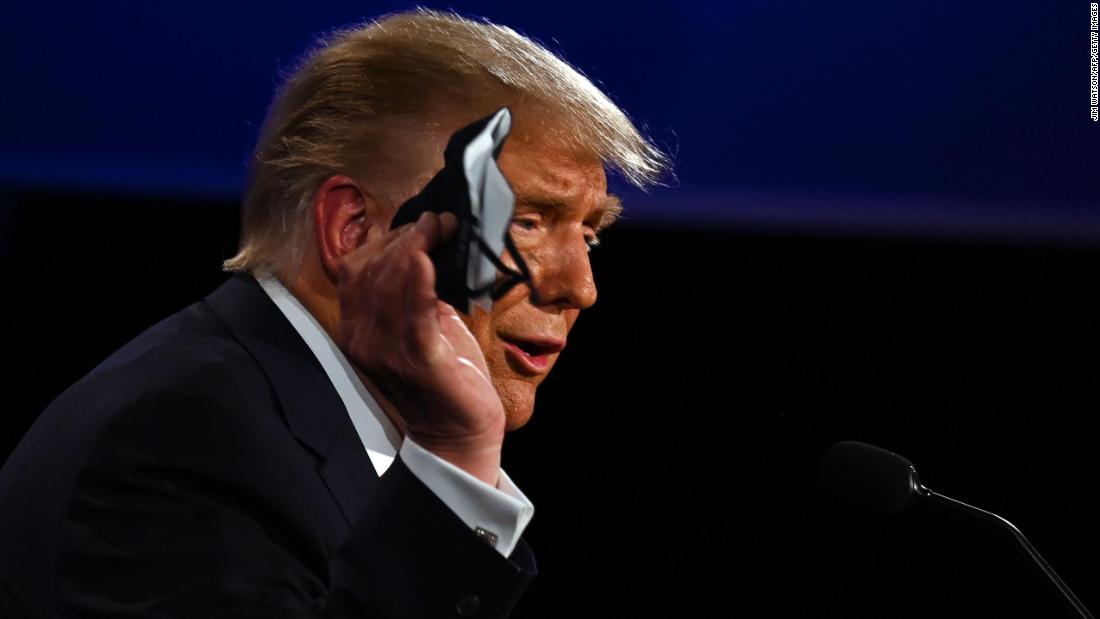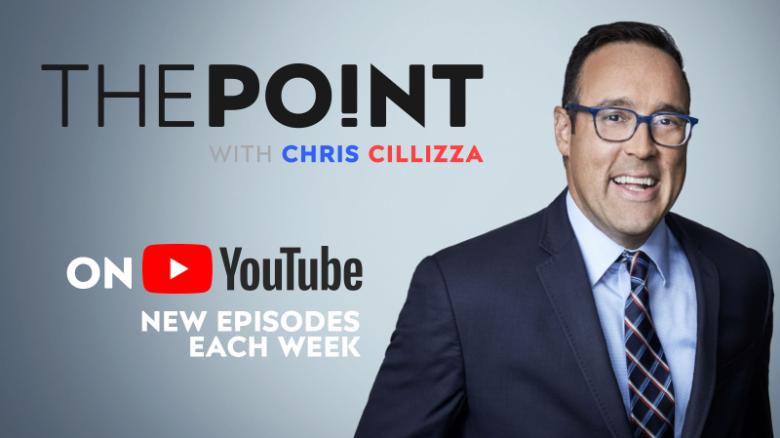Analysis: How Donald Trump completely whiffed on his debate mask answer
But the most dangerous thing Trump may have said on Tuesday night — in terms of actually endangering the lives of people who were watching — was his continued skepticism of mask-wearing and mockery of former Vice President Joe Biden’s regular use of masks.
Wallace: President Trump, you have begun to increasingly question the effectiveness of masks as a disease preventer. And in fact, recently you have cited the issue of — of waiters touching their masks and touching plates. Are you questioning the efficacy of masks?
Trump: No, I think that masks are OK. You have to understand, if you look — I mean, I have a mask right here. I put a mask on, you know, when I think I need it.
Tonight, as an example, everybody’s had a test and you’ve had social distancing and all of the things that you have to, but —
Biden: Just like your rallies.
Trump: — I wear masks when needed. When needed, I wear masks.
Wallace: OK, let me ask —
Trump: I don’t have — I don’t wear masks like him. Every time you see him, he’s got a mask. He could be speaking 200 feet away from them and he shows up with the biggest mask I’ve ever seen.
So, yeah.
Now to the broader point: The President of the United States, offered the opportunity to end his mask skepticism with 70 million-plus people watching, could muster only that masks were “OK.” What a ringing endorsement! That’s sure to change a lot of minds!
But it wasn’t just that lukewarm comment on mask-wearing.
Trump went on to note that he actually had a mask (in his jacket pocket) and that “I put a mask on, you know, when I think I need it.” When, exactly, is that? And how is Trump, who is not a medical doctor or an infectious disease expert, the arbiter of when he should and shouldn’t wear a mask? After all, actual experts in the field have made clear the mask-wearing is effective in slowing the spread of the virus.
And then, as a sort of cherry on top of the sundae, Trump decided to attack Biden for wearing a mask too often. (Reminder: Trump is neither a doctor nor an infectious disease expert.) “Every time you see him, he’s got a mask,” Trump said of the former vice president. “He could be speaking 200 feet away from them and he shows up with the biggest mask I’ve ever seen.”
The point of all of this is that when the leader of the country speaks, a big chunk of people listen. So when Trump refuses to advocate for mask-wearing and, in fact, works to make masks a sign of weakness, it has a profound effect on his supporters’ willingness (or, more accurately, lack thereof) to wear them. Which, as we know from study after study, puts those who refuse to wear masks — and those people they are around — at greater risk of contracting Covid-19. And of dying from the disease.
Trump’s continued mask skepticism, then, isn’t just political spin. It’s misinformation with potentially catastrophic consequences.
![]()



